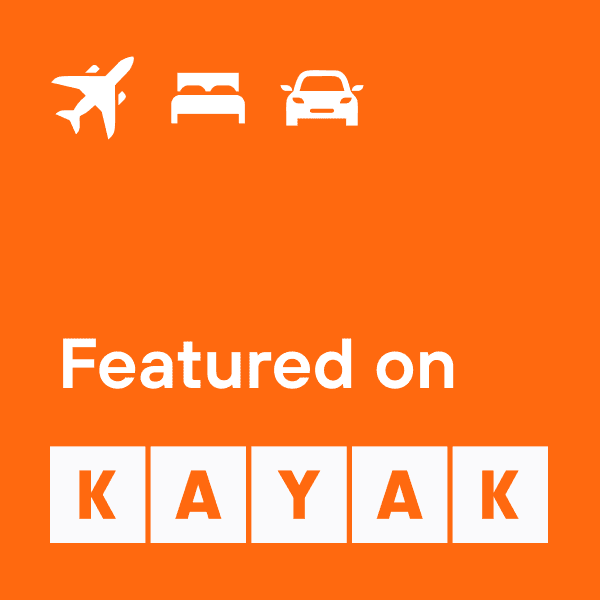Flight Training Courses
Recreational Pilot Permit (RPP)
The Recreational Pilot Permit (RPP) is ideal for someone who wishes to complete their training in the shortest time-frame in order to fly ultralight airplanes as well as fixed wing airplanes with up to 4 seats.
This permit comes with a few specific restrictions:
- You are restricted to flying aircraft with up to 4 seats but are only able to carry a maximum of 1 passenger at a time.
- You are restricted to flying during daylight hours and within Canada.
- The only rating that can be added is a landplane (wheels) or a seaplane (floats) rating.
Flight time from a RPP can be counted towards a Private Pilot License (PPL) and remove some of the restrictions either directly or by means of an additional rating.
This Program does not require approval by the Private Training Institutions Regulatory Unit (PTIRU) of the Ministry of Advanced Education, Skills and Training. As such, PTIRU did not review this program.
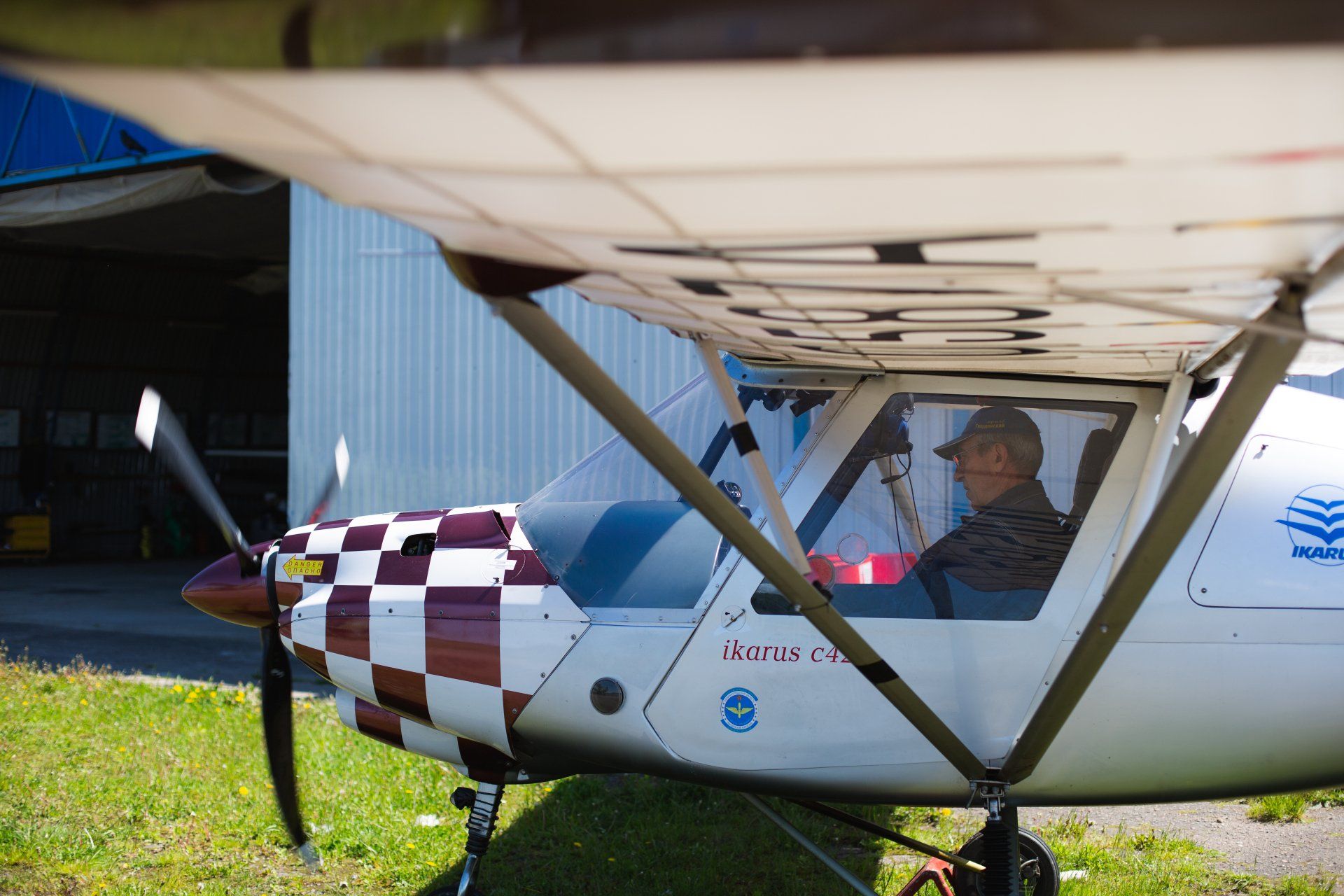
Requirements for the Recreational Pilot Permit
AGE
- Must be at least 16 years of age on the date of issue of the Permit.
- Training for this may be obtained prior to the 16th birthday.
MEDICAL
- A valid Category 4 (or higher) medical is required to be obtained prior to, or immediately upon commencement of ground or flight training.
KNOWLEDGE
- Ground school is not a requirement for the RPP. Self-study to prepare for the written exam is allowed. However, we strongly recommend that the student undertake the Private Pilot ground school to help understand the fundamentals and prepare better for the written exam.
- Successfully complete the Transport Canada written exam for either the Recreational Pilot Permit (RPPAE) or for the Private Pilot License (PPAER).
EXPERIENCE
- A minimum of 25 hours of flight training in airplanes, including:
o A minimum of 15 hours of dual instruction including a minimum of 2 hours of dual cross-country
o A minimum of 5 hours of solo flight time
SKILL
- Successfully complete a Transport Canada flight test to either the Recreational Pilot Permit standards or the Private Pilot License standards.
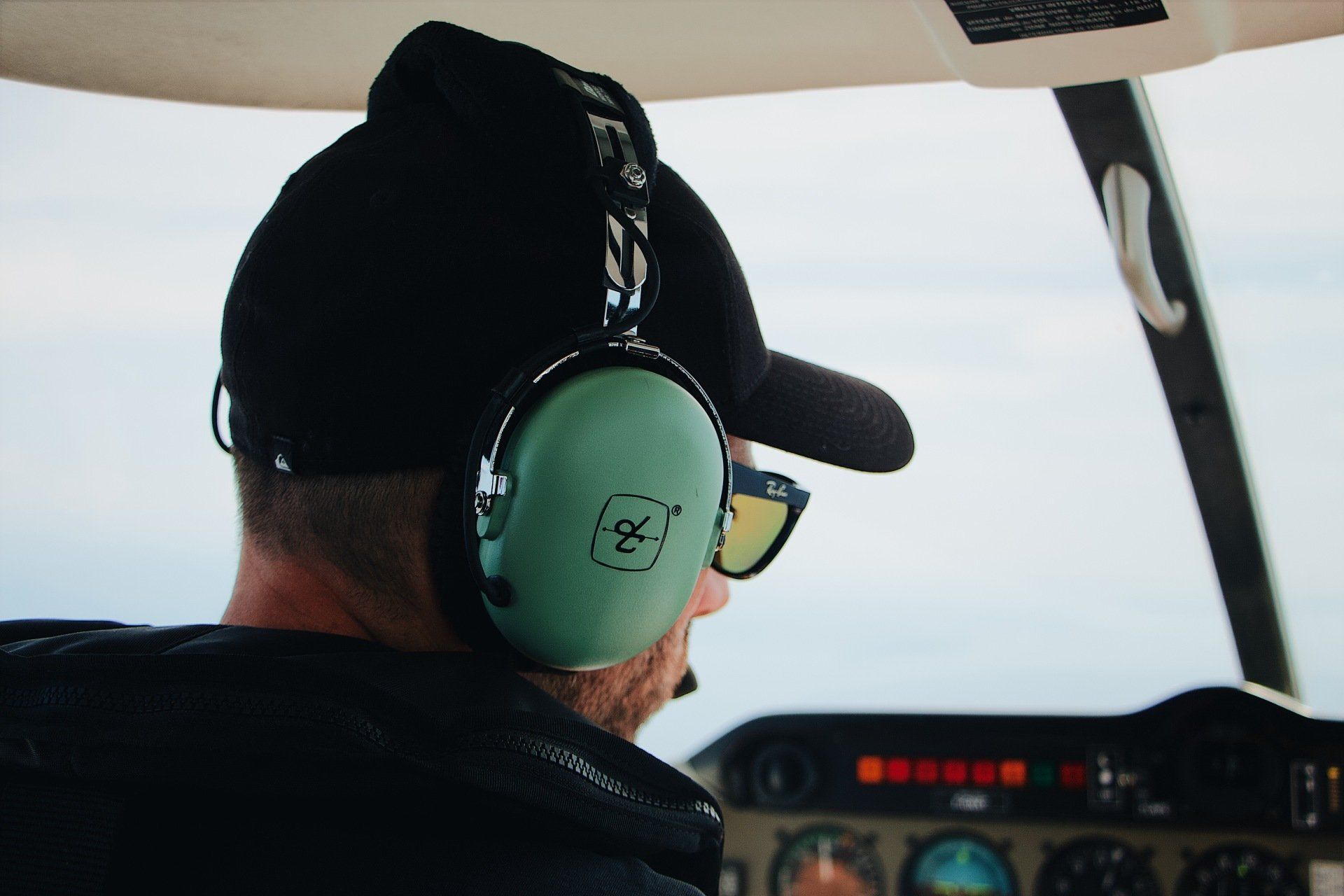
Private Pilot Licence (PPL)
The Private Pilot License (PPL) is ideal for someone looking to enjoy the freedom of flying with their friends and family.
Additional ratings such as Night, VFR OTT, Seaplane (Floats), Multi-Engine and Instrument (IFR) can be added to the PPL.
Aspiring professional pilots are required to obtain a PPL prior to going towards a modular Commercial Pilot License (CPL) training program.
This Program does not require approval by the Private Training Institutions Regulatory Unit (PTIRU) of the Ministry of Advanced Education, Skills and Training. As such, PTIRU did not review this program.
Requirements for the Private Pilot Licence
AGE
- Must be at least 17 years of age on the date of issue of the License.
- Training for this may be obtained prior to the 17th birthday.
MEDICAL
- A valid Category 3 (or 1) medical is required to be obtained prior to, or immediately upon commencement of ground or flight training.
KNOWLEDGE
- Complete a ground school course of a minimum of 40 hours.
- Successfully complete the Transport Canada written exam for the Private Pilot License (PPAER).
EXPERIENCE
- A minimum of 45 hours of flight training in airplanes, including:
o A minimum of 17 hours of dual instruction including a minimum of 3 hours of dual cross-country and a minimum of 5 hours instrument training.
o A minimum of 12 hours of solo flight time including a minimum of 5 hours of solo cross-country.
SKILL
- Successfully complete a Transport Canada flight test to Private Pilot License standards.
Night Rating
The Private Pilot License (PPL) allows you to fly only during daylight hours.
You may want to extend the usefulness of your license by obtaining a Night Rating.
While there is no formal ground school, written exam or flight test required to obtain this rating, there are minimum flight time requirements. In addition, you must also receive a recommend from your instructor for issuance of the rating.
This Program does not require approval by the Private Training Institutions Regulatory Unit (PTIRU) of the Ministry of Advanced Education, Skills and Training. As such, PTIRU did not review this program.
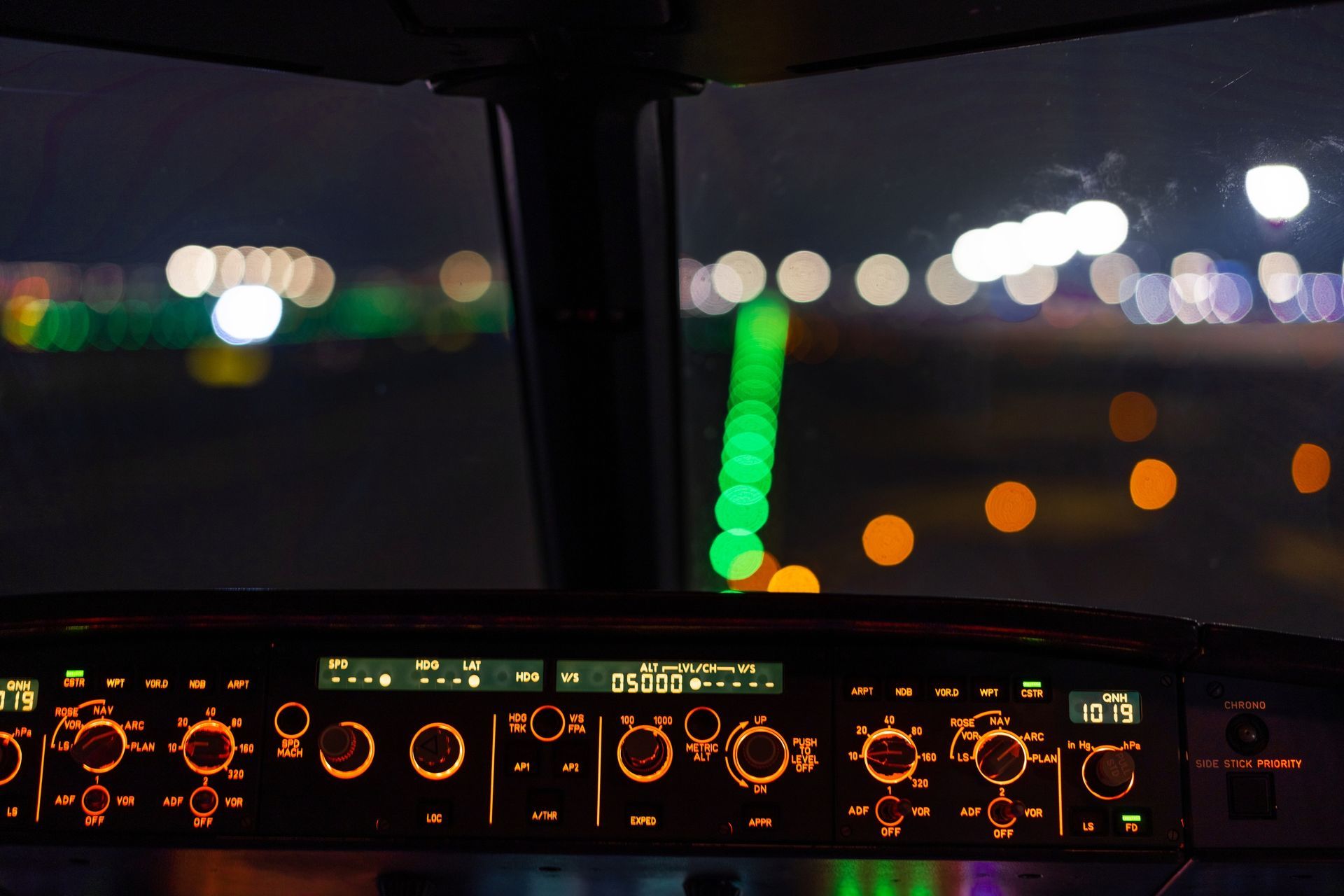
Requirements for the Night Rating
PREREQUISITE
- Must hold a Private Pilot License or higher.
AGE
- Must be at least 17 years of age.
MEDICAL
- Be in possession of a valid Category 3 (or 1) medical.
KNOWLEDGE
- Ground instruction pertaining to Night operations as taught by your flight instructor in conjunction with your flight training.
EXPERIENCE
- A minimum of 20 hours of flight training in aeroplanes including:
- A minimum of 10 hours dual instrument time. Instrument time obtained during the PPL can be counted towards this requirement.
- A minimum of 5 hours dual instruction at night.
- A minimum of 2 hours dual cross-country at night.
- A minimum of 5 hours solo flight time at night.
- A minimum of 10 take-offs and landings at night as the sole occupant.
SKILL
- Successfully demonstrate to the instructor, the ability to safely operate an aeroplane during hours of operation at night.
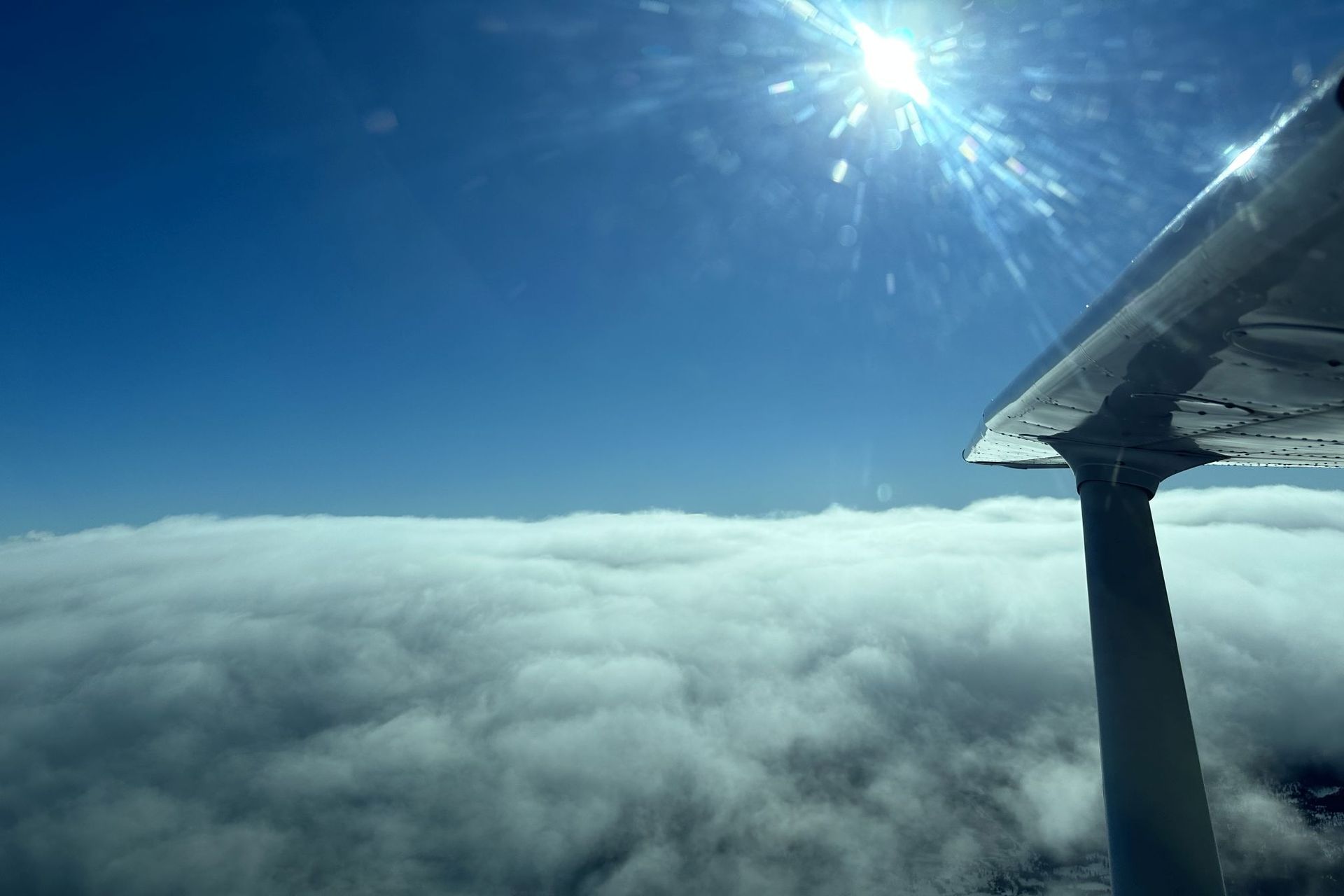
VFR Over the Top (VFR-OTT) Rating
The Visual Flight Rules (VFR) Over-The-Top (VFR OTT) rating makes it possible to depart under Visual flight conditions, fly enroute to the destination over poor weather conditions such as a broken or overcast cloud layer, and descend down to a destination that is under good Visual flying conditions without going through a cloud layer that is considered a broken or overcast ceiling.
This rating opens up considerable opportunities for pilots without the need for an Instrument Rating but still allows them to fly above a lower layer, with good terrain clearance altitudes and without the need to descend beneath the low-lying cloud layer (also known as scud-running) in order to remain legal VFR.
This Program does not require approval by the Private Training Institutions Regulatory Unit (PTIRU) of the Ministry of Advanced Education, Skills and Training. As such, PTIRU did not review this program.
Requirements for the VFR-OTT Rating
PREREQUISITE
- Must hold a Private Pilot License.
AGE
- Must be at least 17 years of age.
MEDICAL
- Be in possession of a valid Category 3 (or 1) medical.
KNOWLEDGE
- Ground instruction pertaining to VFR-OTT operations as taught by your flight instructor in conjunction with your flight training.
EXPERIENCE
- A minimum 15 hours of dual instrument time. Any instrument time obtained during the PPL can be counted towards this requirement
SKILL
- Successfully demonstrate to the instructor his/her ability to safely operate an aeroplane under VFR-OTT conditions and to navigate by means of Radio Navigation equipment.
Multi-Engine Rating
The Multi Engine Rating allows you to fly and aircraft with more than one engine. It is valid for all privileges you have with your Private Pilot or Commercial Licence. The multi-engine rating is suitable for
PPL holders who want to experience larger, faster, or a more complex aircraft.
This Program does not require approval by the Private Training Institutions Regulatory Unit (PTIRU) of the Ministry of Advanced Education, Skills and Training. As such, PTIRU did not review this program.
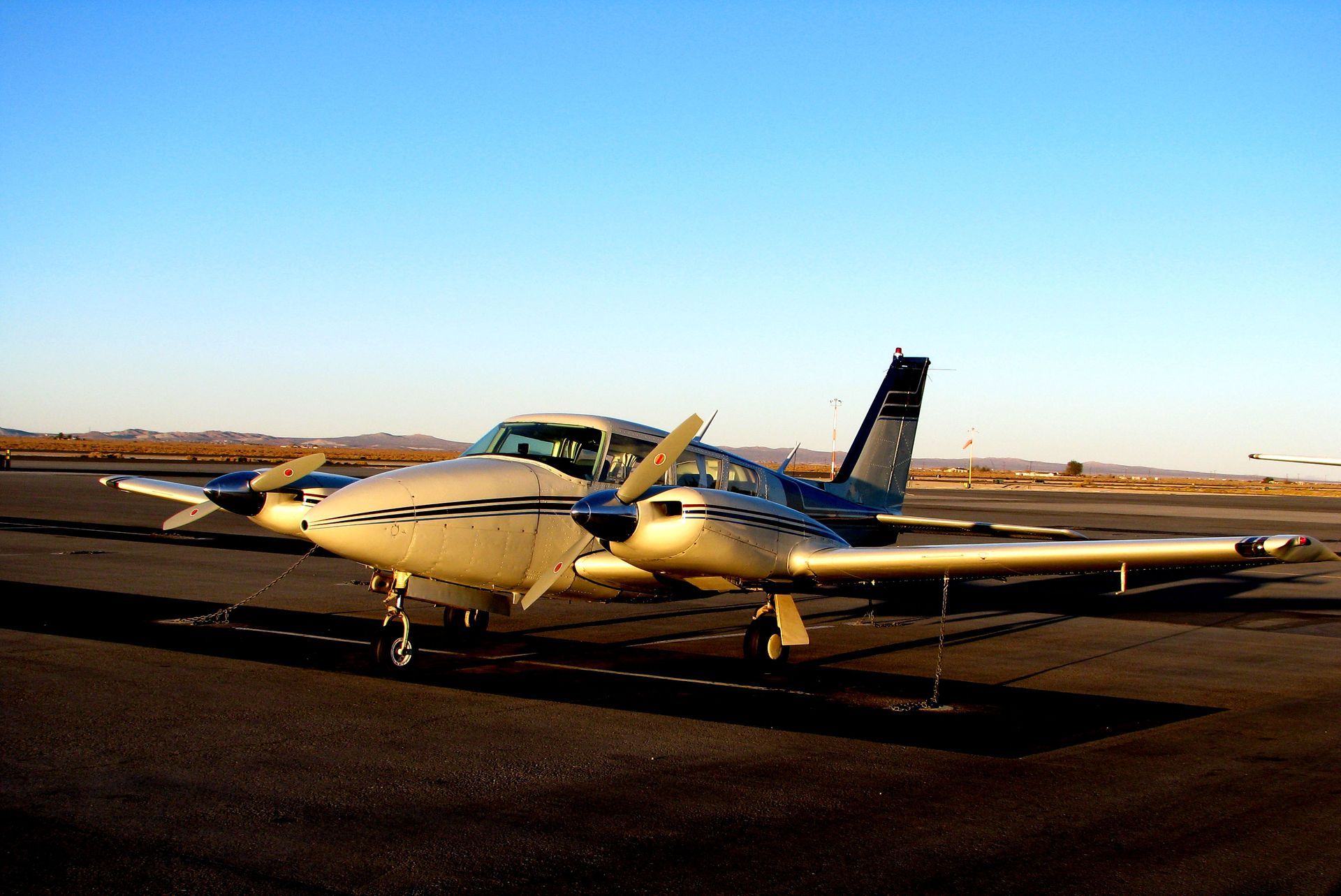
Requirements for the Multi-Engine Rating
PREREQUISITE
- Must hold a Private Pilot License.
AGE
- Must be at least 17 years of age.
MEDICAL
- Be in possession of a valid Category 3 (or 1) medical.
KNOWLEDGE
- Ground instruction pertaining to multi-engine operations as taught by your flight instructor in conjunction with your flight training.
EXPERIENCE
- 10 hours of multi-engine flight time
SKILL
- Successfully complete a Multi-Engine Class rating flight test to Transport Canada Standards.
Note: There are no minimum amount of hours requirement established for the multi-engine rating by Transport Canada. The flight time stated above is the average hours it takes for a pilot to complete this rating. Individual times may vary.
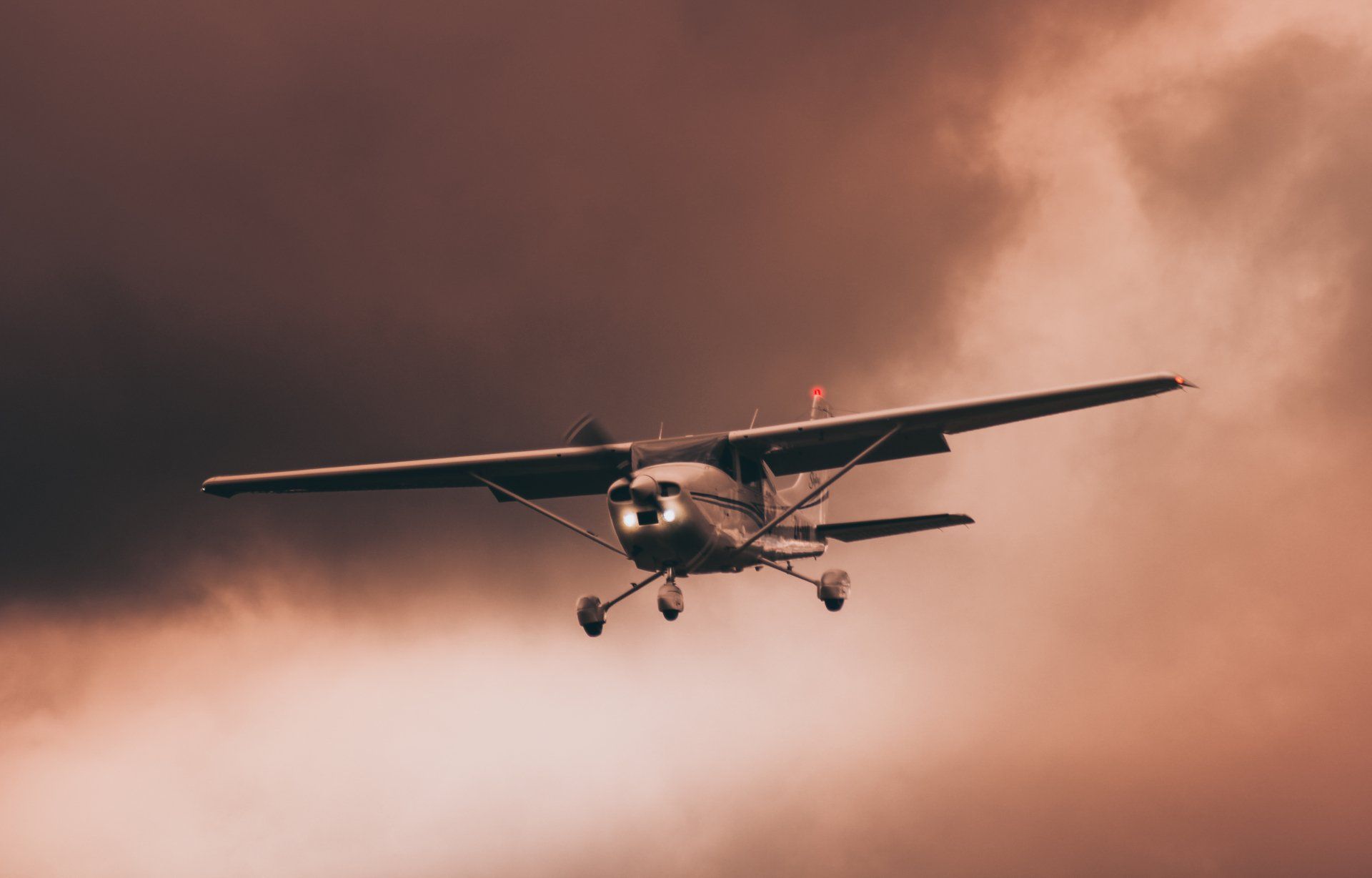
Instrument Rating (Group 1 or Group 3)
The Group 3 Instrument Rating (Single-engine IFR) makes it possible operate single-engine aircraft under Instrument Flight Rules.
This Program is still under review by the Private Training Institutions Regulatory Unit (PTIRU) of the Ministry of Advanced Education, Skills and Training. Enrollment for this program will begin once approval is obtained from PTIRU.
Requirements for the Instrument Rating (Group 1 or 3)
PREREQUISITE
- Must hold a Private Pilot License.
AGE
- Must be at least 17 years of age.
MEDICAL
- Be in possession of a valid Category 3 (or 1) medical.
KNOWLEDGE
- An applicant shall have obtained a minimum of 70% on the Instrument Rating written examination (INRAT).
EXPERIENCE
- A minimum of 40 hours of dual instrument time of which a maximum of 20 hours can be obtained on a flight training device or a flight simulator.
- One dual cross-country flight under simulated or actual Instrument Meteorological Conditions.
- Any instrument time obtained during the PPL can be counted towards this requirement.
SKILL
- Successfully complete a Transport Canada flight test Instrument Rating standards on a single-engine (Group 3) or multi-engine (Group 1) aircraft.
Commercial Pilot Licence (CPL)
The Commercial Pilot Licence (CPL) is a training program designed to prepare you for a career as a professional pilot.
Upon completion of the course, students will obtain their CPL, which allows them to fly for compensation or hire.
The Night Rating and the VFR-OTT Rating requirements can be counted towards the issuance of a Commercial Pilot Licence.
This Program has been approved by the Private Training Institutions Regulatory Unit (PTIRU) of the Ministry of Advanced Education, Skills & Training.
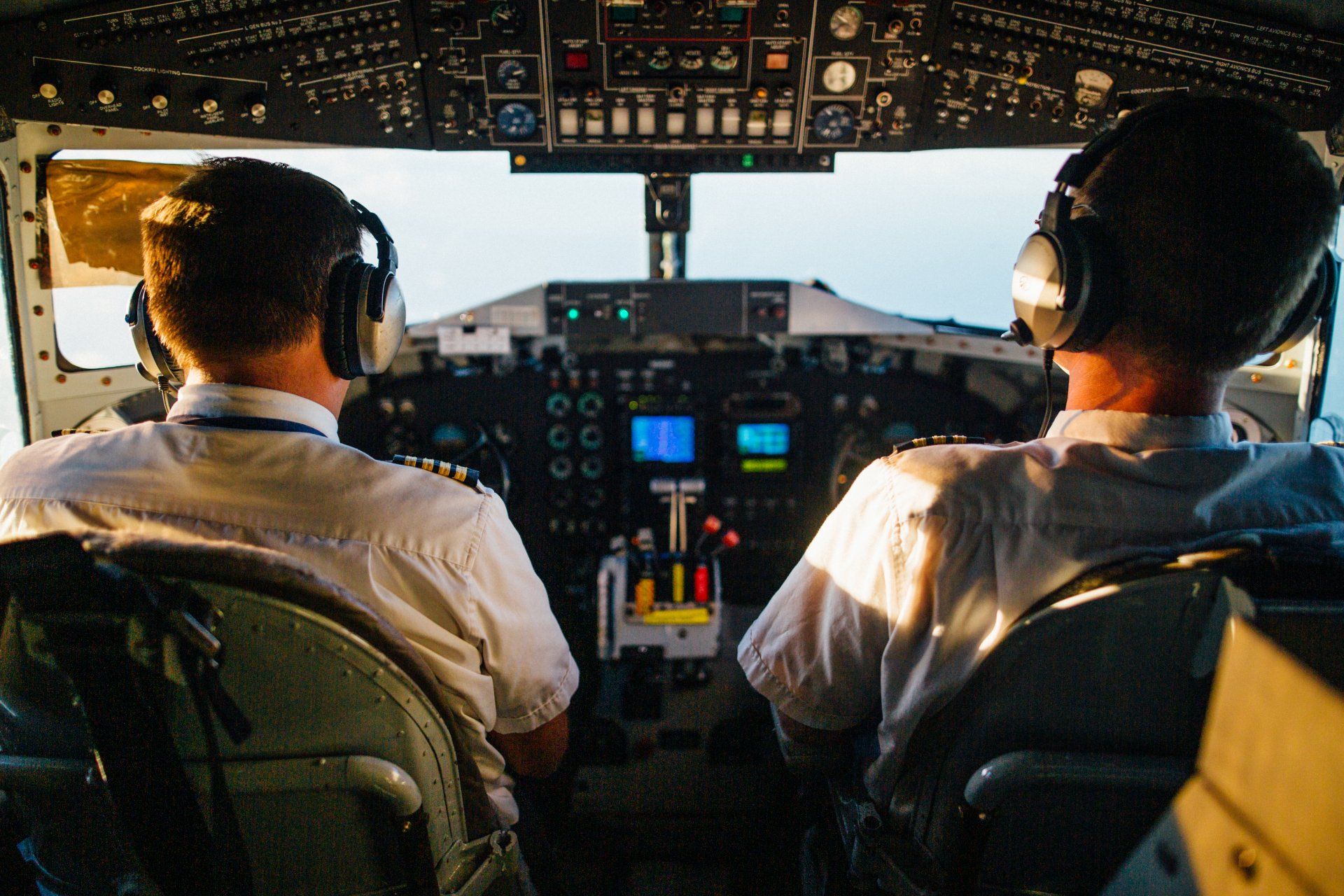
Requirements for the Commercial Pilot Licence
PREREQUISITE
- Must hold a Private Pilot License prior to commencing training towards a CPL.
AGE
- Must be at least 18 years of age on the date of issue of the License.
- Training for this may be obtained prior to the 18th birthday.
MEDICAL
- A valid Category 1 medical is required to be obtained prior to, or immediately upon commencement of ground or flight training.
KNOWLEDGE
- Complete a ground school course of a minimum of 80 hours.
- Successfully complete the Transport Canada written exam for the Commercial Pilot License (CPAER).
EXPERIENCE
- A minimum of 200 hours total time in airplanes.
- A minimum of 100 hours pilot-in-command (PIC)
o A minimum of 20 hours cross-country PIC after obtaining the PPL including a cross-country to a point at least 300 NM in a straight line with 2 full-stop landings enroute. - A minimum of 65 hours of CPL flight training after the PPL including the following:
o A minimum of 35 hours of dual instruction.
o A minimum of 30 hours of solo flight time under instructor supervision.
SKILL
- Successfully complete a Transport Canada flight test to Commercial Pilot License standards.
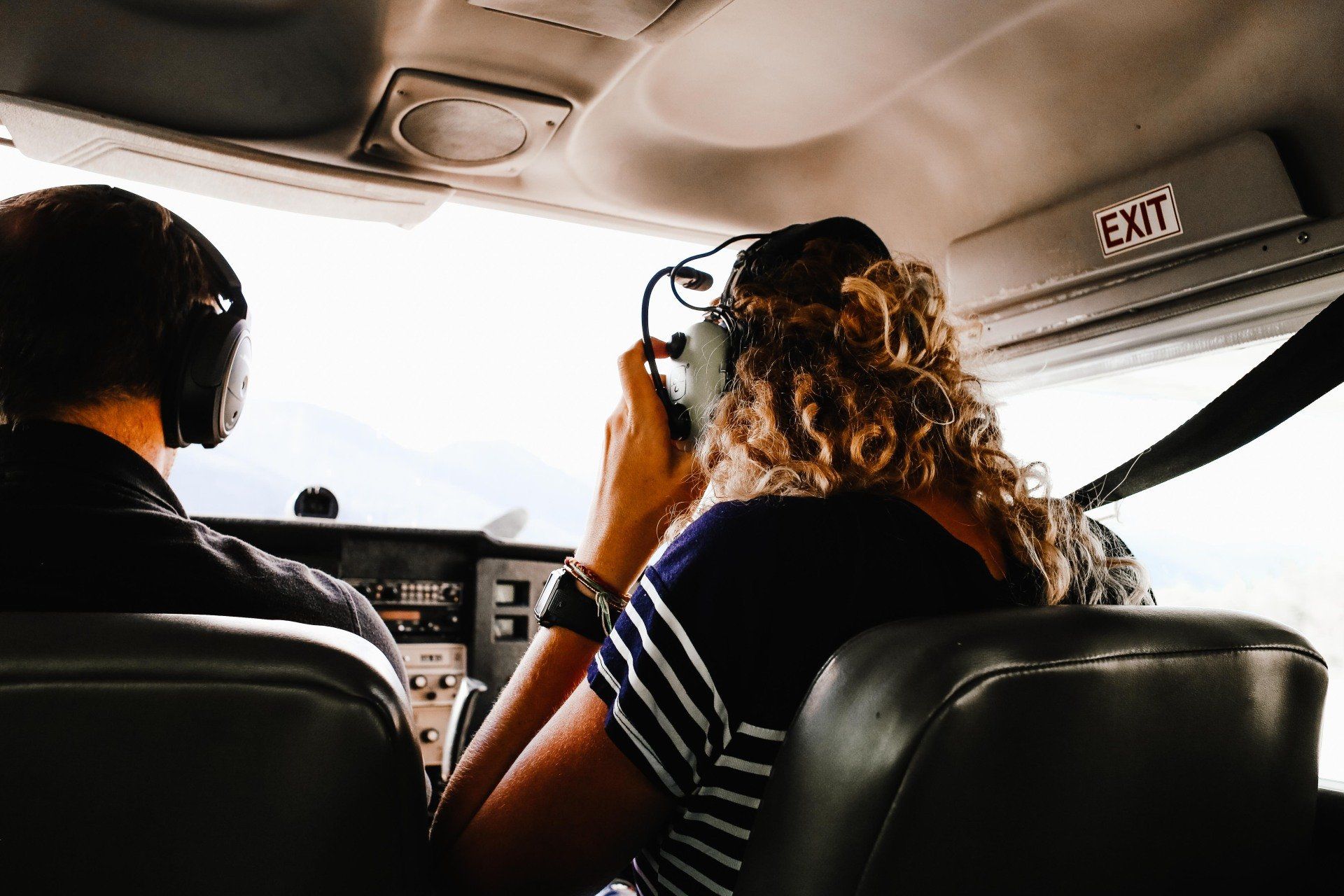
Flight Instructor Rating
An Instructor Rating allows the holder to be able to conduct flight training towards the issue of a rating, permit or license.
Instructors start out as a Class 4 instructor who will be under direct supervision of a Class 1 or 2 instructor until meeting the requirements to upgrade to a Class 3 instructor.
During the course, you will learn to plan lessons to teach students at various stages of their training and also to provide them with both on-the-ground as well as in-flight instruction.
This Program has been approved by the Private Training Institutions Regulatory Unit (PTIRU) of the Ministry of Advanced Education, Skills & Training.
Requirements for the Flight Instructor Rating
PREREQUISITE
- Must hold a valid Commercial Pilot License.
- Ground instruction towards a Class 4 Instructor Rating may begin once the holder has successfully completed the CPL written and flight tests.
AGE
- Must be at least 18 years of age.
MEDICAL
- Be in possession of a valid Category 1 medical.
KNOWLEDGE
- A minimum of 25 hours of Instructor Rating Ground School and/or Briefings.
- Successfully complete the Transport Canada Flight written exam for the Class 4 Instructor Rating (AIRAF).
EXPERIENCE
- Minimum of 30 hours of flight training in aeroplanes provided by the holder of a Class 1 Flight Instructor Rating.
SKILL
- Successfully complete a Transport Canada flight test to Class 4 Flight Instructor Rating standards.
